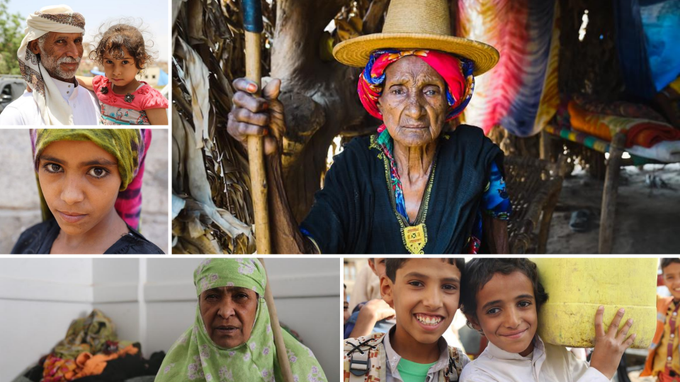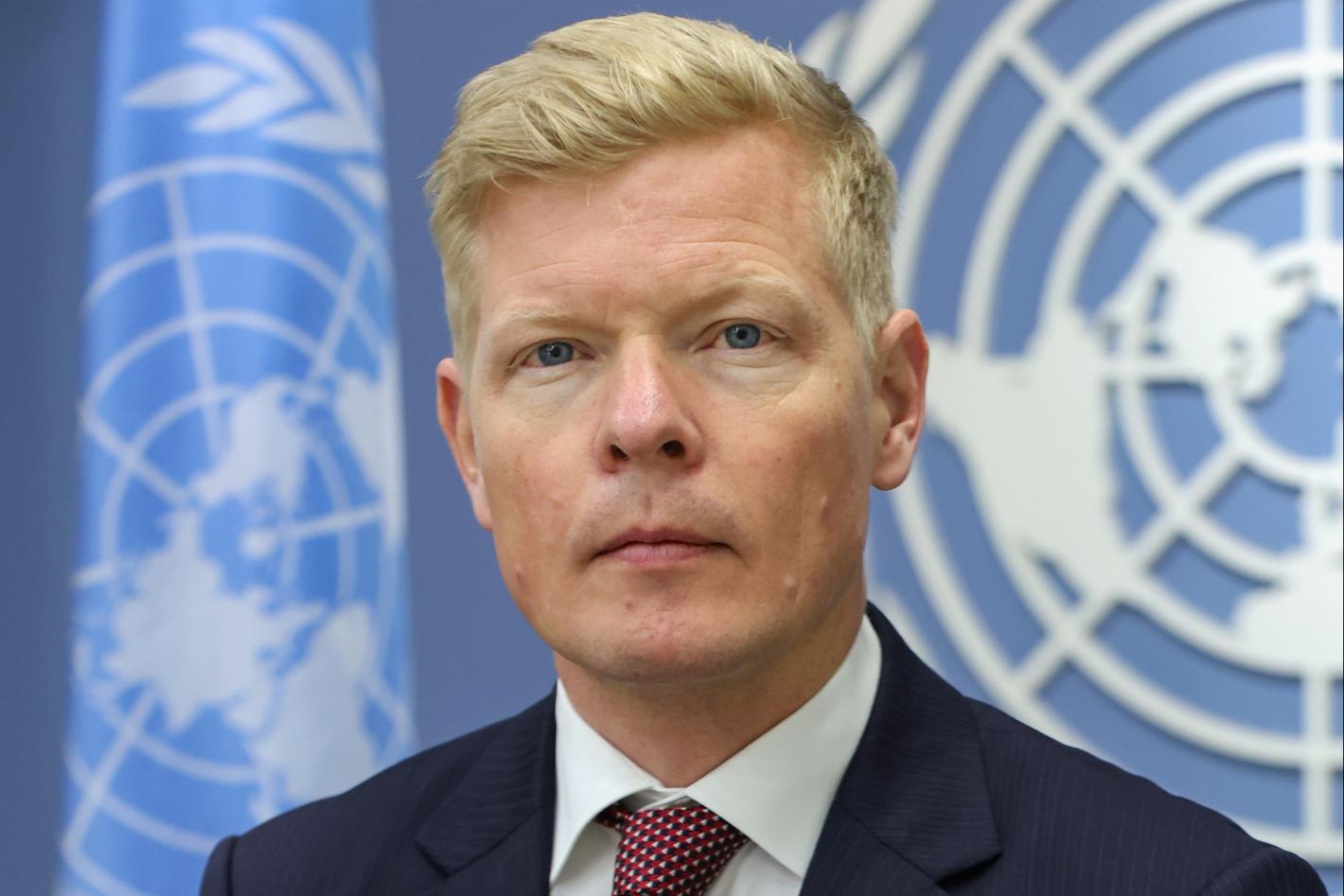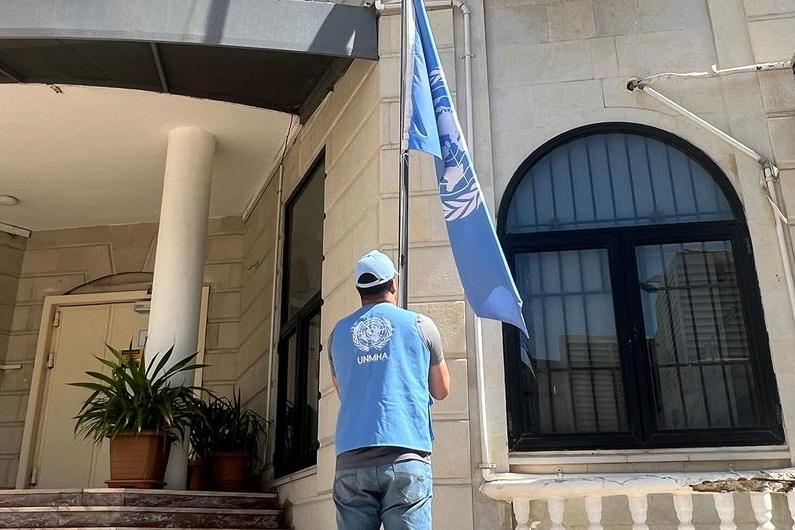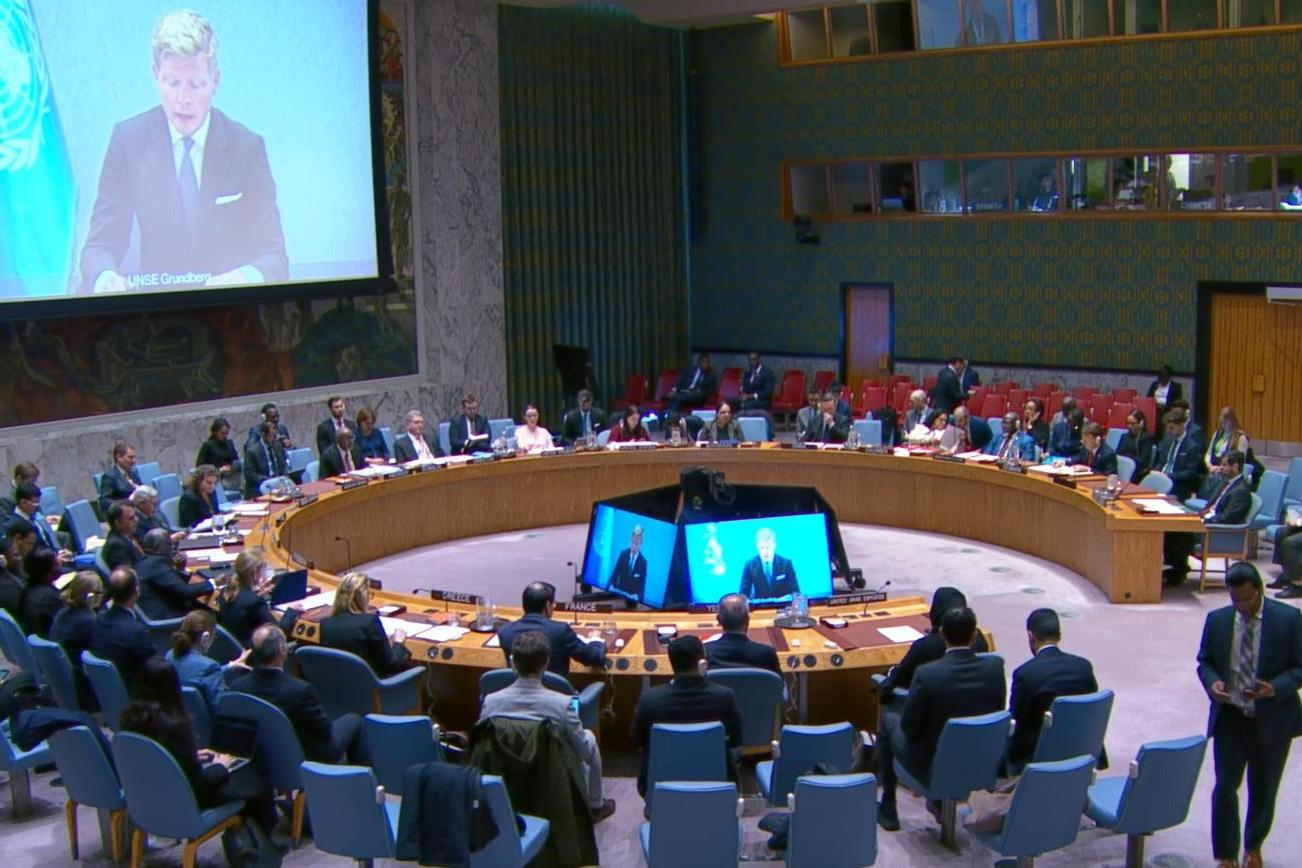The Office of the Special Envoy for Yemen, the Innovation Cell from the UN’s Department of Political and Peacebuilding Affairs and their technology partners had been preparing the event - an innovative, interactive, technology-based solution to systematically dialogue with the public in an open, frank and scalable way - for months. The sentiments, views and insights that the public shared through this system could then be used to inform the UN’s approach in the Yemen peace process. And then COVID-19 struck, upending nearly all aspects of the UN’s work in Yemen and in New York. That the consultation was able to go forward when so many other events had to be rearranged or abandoned served to illustrate one of the reasons the format is so attractive and potentially powerful: the event was always meant to take place virtually, which facilitates large and varied participation.
And so, after some minor adjustments, on 8 and 9 June, the Artificial Intelligence-powered, large-scale dialogue went ahead, with over 500 Yemenis taking part. The technology used enables a single person to hold a real-time ”1-on-1” conversation with a group of up to 1,000 individuals. During three hours of live, interactive online discussion, participants expressed their thoughts on the prospect of a nationwide ceasefire, the future of the political peace process and what is needed to alleviate humanitarian suffering in Yemen. An overwhelming majority of the participants expressed grave concern about the spread of COVID-19 in Yemen and linked the failures in Yemen’s response to the outbreak to the continued war. Participants also voiced support for the resumption of peace talks to reach a comprehensive end of the war in Yemen.
This was the first time this technology was deployed by an active UN mediation process. “Until now, we didn’t have a way to systematically dialogue with and poll peace constituencies at scale with real-time analysis of their views, and at relatively low cost,” said Daanish Masood of DPPA’s Innovation Cell, who led the project. “This new AI-assisted approach changes all of that. It represents a new way of doing business that can make ongoing political and peace processes far more inclusive.”
“While I am cognizant of the limitations of digital consultations in terms of reach and representation, this has been an important step to reach out to Yemenis outside of our usual circles. My office will continue reaching out to broader Yemeni groups and constituencies online and offline to inform our proposals and our mediation strategies for durable peace in Yemen,” said Martin Griffiths, the UN Special Envoy for Yemen.
To get a better sense of what participants thought about the consultation, we spoke with two of them: Ahmed Baider, journalist and media producer in Sana’a and Muna Luqman, founder of Food4Humanity and a co-founder of the Women Solidarity Network, the largest women’s network in Yemen.
What was your experience of the virtual consultation? What do you think can it achieve?
Ahmed Baider: The main takeaway from that event is that we understood the way people think and were getting a general idea of different points of views from different areas of the country. In my opinion such consultations spread awareness. The most important thing in this virtual consultation was that people were anonymous. Yemeni people talked freely, and I think it was very important to us.
Muna Luqman: I liked it very much. Even from people who I know that are a bit negative towards some of these consultations and towards the UN Envoy’s office, I heard very positive feedback. I think it was good that it was anonymous. It was very large scale, so that would give you good quantitative indicators. I also think that the people who were approached were very representative: We had people from the south, north, youth and women, from different political parties and independent. I think the representation of it was good.
What do you think is the value of such an online consultation?
Muna Luqman: You get more views, and, I think, as a Yemeni, you feel that you’re participating in something very important, in shaping the way decisions are made. The deeper the questions are, the more information the UN envoy will get, and this could then reflect positively on the ongoing peace process. For us it’s very important that we feel that we are all participating, that our views are reflected. There has been a lot of exclusion by the way the peace process is designed. It’s designed to be just this two-party agreement. That has a lot of limitations and has caused a lot of frustration in Yemenis. So, I think this online large-scale consultation was a good step.
Ahmed Baider: The most interesting thing on this platform is that the negotiator writes a question, we answer it, and after you answer your question, you can see other peoples’ answers as well without seeing their names. The most important thing is to see the peoples’ ideas, the people’s thinking.
Did you encounter any challenges?
Ahmed Baider: One of the challenges we encountered was the internet. In Yemen, we have slow internet. So, it was a little bit challenging. We needed to refresh the platform again and again to see questions and answer.
Muna Luqman: I think the questions were very reflective of the situation and very relevant, but there could have been some more questions that could have been more important. The closed answers were good. The timing for it was good. But most of the open-ended questions I didn’t answer. I couldn’t get it in in time, and I’m very fast in replying. It was too fast, it just kept on changing to the next question. That means a lot of information was missed on that day.
What were the most important things you wanted to discuss?
Ahmed Baider: We discussed the main issues that all Yemeni people need to talk about, such as opening Sana’a airport, such as opening all of the roads and all of the blockades all around the country. We discussed the political agreement that will build our new future in Yemen. I think the UN discussed the most important things, but they need to focus more on youth and real Yemeni people. The most important thing in this consultation is that we hear from real Yemenis from the ground, who face this war. We have had more than five years of war now in Yemen, and we need peace. That’s why it was very important to discuss.
How do you think this broader perspective, all of these ideas from the Yemeni people, can be brought into the peace process, to the negotiation table?
Ahmed Baider: I think it’s very important to measure how Yemeni people are thinking about different issues from different parts of the country. We can agree that most of the Yemenis need peace. And today, we have the new invisible enemy COVID-19, and people are suffering! The items that the UN can collect from Yemeni people, will help the UN understand the real situation on the ground, and try to make an agreement between the political parties. We need the political parties to agree. It’s very urgent that they agree very soon, otherwise we will lose more lives in Yemen, and people are tired.
Muna Luqman: I’m not saying every single person needs to be included right now. It’s not realistic. But I do think that at least the civil society, the youth, the Southern Transitional Council, the GPC [General People’s Congress] have to have a say, because they are real actors on the ground, negatively and positively.
We had the unilateral ceasefire and then we blew it. I think we will never have another opportunity like this COVID-19 moment. It’s just so frustrating because every time we have a really important moment, it seems that we just lose it. I think that we’ve already lost the momentum on it, but if there is a political will and international pressure, I think we can reach some sort of a situation where at least we get them back to talking. But we don’t want it to just be the warring parties. We especially need the women involved, because they reflect the real essence of what’s going on in Yemen. They’re bringing to the table issues that are never discussed by the warring parties - and these are not women’s issues. They also bring issues to the table on terrorism, on security, on mediation, on detainees: So much information that really is just lost otherwise. I think there’s a lot to be done if we start rethinking the peace process in Yemen.
What do you see as the main threat to the Yemeni peace process?
Muna Luqman: The exclusion. I know the conflict is very multi-layered and complicated in Yemen, but I think that it’s getting even more complicated because of people feeling excluded. We should be listening to other people, even if they are armed. And I’m saying, include the women and the youth, because they’re reflecting the reality on the ground. They’re bringing a lot of roadmaps for peace in Yemen. The other thing is that there hasn’t been any significant monitoring or follow-up on the agreements that have already been made, such as the Stockholm agreement. It seems like we restart again every time. It’s really frustrating for people. People have lost trust. I think that losing hope and losing trust is equal to the violence, because it creates more violence.
Ahmed Baider: The most important thing is to agree that for humanity we should stop this war. There are families in Yemen today, they don’t know where to get their next meal, people who are really suffering. COVID-19 is spreading all around the country and this is a big disaster. If we are the worst humanitarian crisis in the world today, we will be much worse if COVID-19 is spreading in the country. We should stop this war. We are in a blockade and we are, all of us, tired of this war. The main threat is that both parties continue fighting. But no one will win this war. 100 per cent. It has been five years, and no one has won this war. So, it should be through a political agreement and we should build our future as Yemenis together.
What would be your advice to the UN in terms of inclusion of Yemeni voices in the peace process?
Ahmed Baider: The UN should take the ideas from civilians, from the ordinary Yemeni people, from men and women, and bring it to the consultation to make a real political agreement so that Yemeni people can build their future very soon.
Muna Luqman: I seriously think that we need an evaluation of what’s going on now and how it could be developed, because people, while we speak, are dying right now. We also haven’t been able to release salaries for the people, which would be the best step right now to gain the people’s trust and to alleviate some of the suffering. But nothing has happened. So many things, and we are not gaining progress on any of them. This is really the reality.
I’m not actually blaming the UN. But I’m saying that there’s a lot of frustration, and we don’t feel that anybody is really listening or learning from the lessons. We should have at least learned from some of the mistakes that happened at the time of the Stockholm agreement. We need to learn from those lessons and see how we can improve. But just going on in the same way will lead to the same results. We’re willing to help in every way we can. We’re already claiming our space, trying to do whatever we can, everywhere.
I think local dialogues in Yemen could be really impactful: Get the youth to start leading some of them on the ground. People need to feel that they are involved and when they do, they take responsibility. And sometimes you get very important results.





